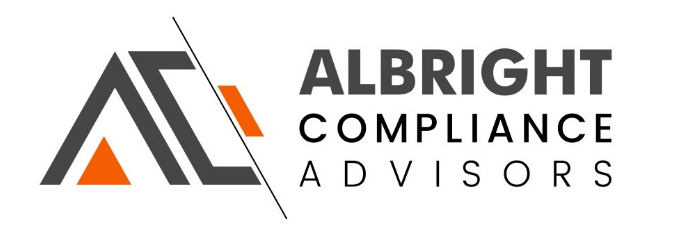Seychelles has emerged as a significant player in the global financial services sector, attracting a diverse range of businesses, from securities dealers(broker/dealers), investment firms to insurance companies and other players in capital markets. However, with the rapid expansion of its financial markets comes a dynamic and often complex regulatory environment. This article looks into the current regulatory landscape in Seychelles, highlighting key compliance challenges that financial services face, along with practical strategies for navigating these hurdles.
The Current Regulatory Environment
In recent years, Seychelles has made substantial strides in enhancing its regulatory framework to align with international standards. The Seychelles Financial Services Authority (FSA) oversees the regulation and supervision of financial services, including insurance and capital markets as well as virtual assets service providers(VASPs). The introduction of measures such as the Financial Consumer Protection Act(FCPA), the VASP Act and the Anti-Money Laundering and Combating the Financing of Terrorism (AML/CFT) Act and respective regulations underscores the country’s commitment to maintaining the integrity of the financial system.

Common Compliance Challenges

As the regulatory landscape evolves, financial services providers in Seychelles face several compliance challenges:
- Adapting to New Regulations: One of the most pressing challenges is the continuous adaptation to new regulations. Financial institutions must ensure that their compliance programs are robust enough to identify and mitigate risks associated with money laundering and terrorist financing. This includes regular training for staff, implementing effective monitoring systems, and maintaining updated records.
- Ensuring Effective KYC Procedures: Know Your Customer (KYC) procedures are essential for verifying the identities of clients and understanding their financial activities. However, many firms struggle with implementing effective KYC measures. The challenge lies in balancing thorough due diligence with maintaining a seamless customer experience. Financial institutions must invest in technology solutions that streamline KYC processes while ensuring due diligence.
- Keeping Up with Regulatory Updates: The regulatory environment is in a constant state of flux, with new guidelines and amendments frequently introduced. Financial services providers must stay informed about these changes to avoid non-compliance. This can be particularly challenging for smaller firms with limited resources. Establishing a dedicated financial governance team or partnering with compliance advisors can help businesses stay ahead of regulatory developments.
- Internal Audit and Risk Management: Effective internal audits and risk management are critical components of regulatory compliance. However, many organizations fall short in these areas due to a lack of resources or expertise. Establishing a comprehensive internal audit framework that regularly assesses compliance practices can help identify weaknesses and areas for improvement. Moreover, implementing a robust risk management strategy ensures that potential compliance risks are identified and mitigated proactively.
- Adapting to Increasing regulatory reporting requirements: The changes in the regulations have resulted in an increase in the number reporting requirements for financial service providers in Seychelles and this puts extensive pressure on the compliance functions of entities. Moreover, implementing on going monitoring procedures for all the additional regulations presents a significant challenge in addition to the quarterly, half-yearly and yearly reporting requirements

Practical Tips for Navigating Compliance Challenges
- While the challenges are significant, there are practical strategies that financial services providers can employ to navigate the evolving regulatory landscape successfully:
- 1. Invest in regulatory adherence Technology. Leveraging technology can streamline compliance processes and reduce the burden on staff. Automated compliance solutions can enhance KYC procedures, monitor transactions for suspicious activity, and generate necessary reports. Investing in compliance technology not only improves efficiency but also helps ensure adherence to regulatory requirements.
- 2. Foster a Culture of Compliance. Creating a culture of compliance within the organization is crucial for long-term success. This involves training employees at all levels on compliance requirements and promoting an understanding of the importance of adhering to regulations. Regular workshops and training sessions can help reinforce this culture.
- 3. Engage with Regulatory Authorities. Maintaining open lines of communication with regulatory authorities can provide valuable insights into upcoming changes and expectations. Financial institutions should actively participate in industry forums and discussions to stay informed and engage with regulators. This proactive approach can also help build a positive relationship with regulatory bodies.
- 4. Seek Expert Guidance. Navigating the complexities of financial governance can be daunting, particularly for organizations lacking in-house expertise. Partnering with compliance advisors, such as Albright Compliance Advisors, can provide tailored guidance and support. These experts can help businesses develop regulatory alignment frameworks, conduct risk assessments, and ensure adherence to local and international regulations.
- 5. Regularly Review and Update Compliance Policies. Given the dynamic nature of the regulatory landscape, financial institutions must regularly review and update their conformance to standards policies. This includes conducting periodic assessments to ensure that internal procedures align with current regulations. An agile compliance framework enables firms to adapt quickly to new requirements and mitigate potential risks.
Conclusion
The evolving regulatory landscape in Seychelles presents both challenges and opportunities for financial services providers. By understanding the key regulatory adherence challenges and implementing practical strategies, businesses can navigate this complex environment effectively. Staying informed, investing in technology, and fostering a culture of financial governance are essential steps in ensuring adherence to regulations while maintaining operational efficiency.
As Seychelles continues to position itself as a leading financial hub, financial institutions must remain vigilant and adaptable. Engaging with compliance advisors like Albright Compliance Advisors can provide valuable support in navigating the intricacies of the regulatory landscape, ultimately contributing to the sustainability and success of businesses in the region.
By prioritizing regulatory alignment, financial services firms in Seychelles can not only meet regulatory requirements but also build trust and credibility among clients and investors, ensuring their long-term viability in an increasingly competitive market.







